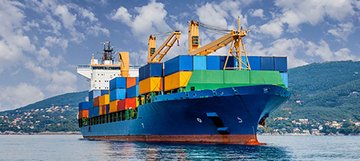Marine Fuel Testing
Savant Labs provide comprehensive marine fuel testing services to address the challenges facing the marine industry. In response to IMO 2020 regulations now in effect as of January 1, 2020, new lubricant additive solutions must be developed to match the new low sulfur fuel levels. Savant Labs is positioned to assist with the necessary fuel testing to meet the specifications now in place for marine diesel engines and boilers.
In addition to IMO 2020, marine fuels must also comply with ISO 8217:2017. ISO 8217 sets limits on the marine fuel’s appearance, carbon residue, cloud point, density, flash point, pour point, viscosity, and other fuel properties. The requirements take into consideration the environment, safety, storage and handling, and combustion performance for each category of fuel. This specification for fuels can also be applied to fuels used in stationary diesel engines of the same or similar type as those used for marine purposes.
ASTM International Methods
ASTM D93 Flash Point, Pensky-Martins Closed Cup
ASTM D97 Pour Point
ASTM D445 Kinematic Viscosity, 0°C and Above
ASTM D482 Total Ash
ASTM D525 Oxidation Stability (Gasoline)
ASTM D664 Acid Number
ASTM D1298 Density / API Gravity, Hydrometer
ASTM D2274 Oxidation Stability (Petroleum Fuel Oil)
ASTM D2500 Cloud Point
ASTM D2622 Sulfur by XRF - Wavelength Dispersive
ASTM D4052 Specific Gravity (Includes API Gravity)
ASTM D4294 Sulfur by XRF - Energy Dispersive
ASTM D4530 Carbon Residue, Micro
ASTM D4737 Cetane Index (Calculated from D1298 & D86)
ASTM D5185 Elemental Analysis by ICP
ASTM D6371 Cold Filter Plug Point
NACE TM0172 Corrosive Properties of Cargoes in Petroleum Product Pipelines
SAVLAB WHAT Fuel Additive Water Uptake

